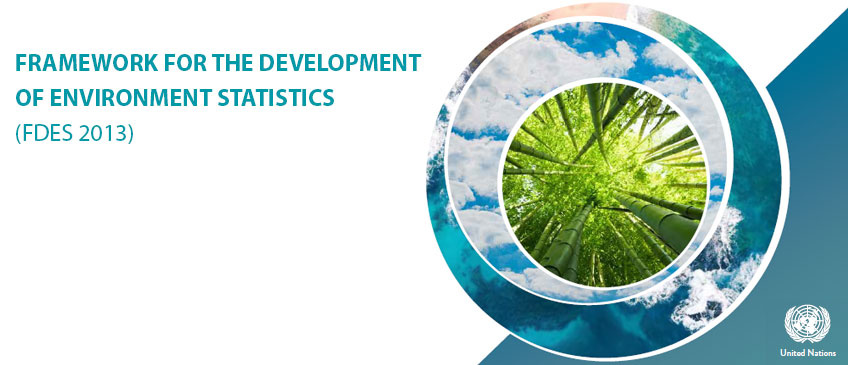Work Programme
The Environment Statistics Section of the United Nations Statistics Division (UNSD) is engaged in the development of methodology, data collection, capacity development, and coordination in the fields of environmental statistics and indicators.
Methodology
Methodological work includes the elaboration of frameworks, concepts, methods, definitions, and data compilation guidelines to support the development and harmonization of national and international statistics on the environment.
- FDES 2013
- Basic Set of Environment Statistics
- Environment Statistics Self-Assessment Tool
- Expert Group on Environment Statistics
- Manual on the Basic Set of Environment Statistics
- International Recommendations for Water Statistics
- Environmental surveys
- Concepts and Methods of Environment Statistics
- Glossary
Data
Data collection is implemented through the biennial Questionnaire on Environment Statistics. Data collection started in 1999. UNSD environmental indicators derived from these data, as well as for the eight other themes, are now available.
Capacity Development
Technical cooperation, training and capacity development is provided through regional and sub-regional projects, international training workshops, fellowship arrangements and assistance to countries. Recent projects covered the countries of the CARICOM, ESCWA, ECOWAS and EAC regions.
Coordination
Coordination of international activities in the field of environmental statistics and indicators is provided through the Intersecretariat Working Group on Environment Statistics (IWG-Env) with UNSD as the Secretariat.
Recent updates
Climate Change Statistics
FDES 2013
- Basic Set of Environment Statistics
- FDES 2013 brochure
- Blueprint for Action
- Environment statistics compendia
- Environment Statistics Self-Assessment Tool
- Framework for the Development of Environment Statistics (FDES 2013)
- SDG indicators + Basic Set (FDES) matrix
- Manual on the Basic Set of Environment Statistics
- Expert Group on Environment Statistics





